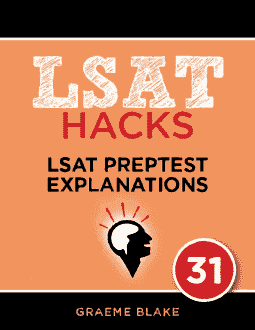QUESTION TEXT: If something would have been justifiably regretted…
QUESTION TYPE: Sufficient Assumption
CONCLUSION: Many foregone pleasures should never have been desired.
REASONING: If something would have been justifiably regretted when it occurred then it should never have been desired.
ANALYSIS: The language is confusing, so I’ll use an example.
Suppose you see a box of 20 donuts. Your stomach says: “eat them!” If you did eat them, you would justifiably regret it: you’d feel terrible! According to the stimulus you therefore should never have desired to eat the donuts (because it would be justifiably regretted.)
If you decide not to eat the donuts, then eating the donuts is a foregone pleasure: a pleasure you decided not to enjoy.
The argument is missing a link between justifiably regretted and foregone pleasures. Some foregone pleasures would not be regretted, such as taking time off work to play with your kids.
We need to know that many foregone pleasures would have been justifiably regretted.
___________
- The argument is describing a situation where we do regret pleasures. This answer choice says we should not regret pleasures. Useless.
- This doesn’t tell us that many foregone pleasures (that we did desire) should never have been desired in the first place.
- This doesn’t let us conclude that many of those foregone pleasures should never have been desired.
- CORRECT. If many foregone pleasures would have been justifiably regretted then we should never have desired those pleasures (which was our conclusion.)
- This unfortunately doesn’t specify if those desires that were also pleasures were foregone.


Leave a Reply